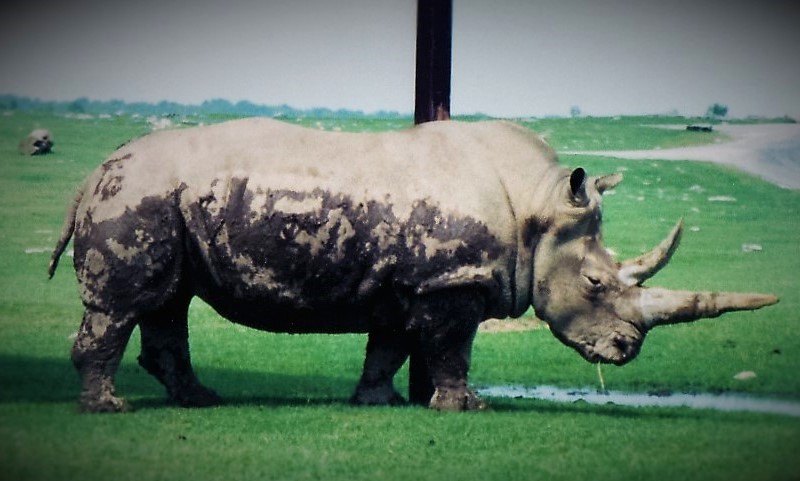Is Trump a White Supremacist?

Much of the frenzy over Donald Trump’s ever-changing, peculiarly nuanced response(s) to the violence in Charlottesville has been focused on the question of whether Trump secretly sympathizes with white supremacists, or whether perhaps — as in the apparent view of certain members of Dumb Blonds For Trump — he ought to sympathize with them. (And where is Ann Coulter these days, by the way?)
A good representation of this pseudo-debate may be seen in the silly on–air argument between DBFT honorary vice-president Laura Ingraham and the chairman of Progressives-in-Conservative-Clothing, Charles Krauthammer.
Ingraham’s attitude seems to be, in effect, that it really doesn’t matter whether or not Trump likes the support of David Duke, as long as he can refocus the discussion onto his economic policies. Krauthammer, for his part, makes the absurd declaration — probably coaxed into it by Ingraham’s ignorance and sauciness — that Trump’s initial, non-condemnatory response represented what was “in his heart.”
For the sake of scoring points for their own personal agendas, both sides conveniently overlook the obvious: there is nothing in Trump’s heart, just as there is nothing of consequence in his head. He is a simpleton with no moral core whatsoever. (And yes, Ms. Ingraham, we can know that — try listening to the doofus for two minutes rather than projecting some fantasy amalgam of John Galt and Ronald Reagan onto his illiterate tweets and incoherent bluster.)
Trump uses people for his own advantage, not through some kind of genius, as his fans would like to believe, but by means of a simple lack of conscience or principle. His motive is to gain fame and glory for himself, as a shark’s motive is to eat. To that end, he will side with anyone today, betray them tomorrow, praise them the next day, publicly criticize them the day after that, without an iota of compunction or concern about accusations of inconsistency.
Consistency is a concept that is meaningful only with reference to an entity with continuous self-identical existence. Donald Trump is not such an entity, for he has no core or substance that could abide through time, thus establishing an essential continuity of being, least of all in his own self-perception. He is, if you will, a cinematographic man: a series of discrete images strung together, which, if scrolled through quickly, may produce the illusion of continuous movement, a single life.
Trump, who as he tells us is his own greatest advisor, has found some benefit from playing to the so-called white nationalist kooks. So he plays to them. When he believes he is losing favor with other potential admirers by seeming too cozy with the white nationalists, he calls them “repugnant.” Then when he, on his throne with his Twitter account, notices that those useful white nationalist hordes are so used to being hated by everyone that they find Trump’s moral equivalency arguments — blaming the violence on both themselves and the leftist protesters equally — flattering, and are willing to stick with him on the understanding that “for optics” he has to criticize them a little publicly, he decides to double-down on those moral equivalency arguments, figuring that he can have his cake (look tough on racism and violence) and eat it too (maintain the support of a small but vocal part of his “base”).
To call him cynical is to give him more credit than he deserves. He is not focused on a secret agenda. He doesn’t care about illegal immigration, taxes, health care, North Korea, or anything else, except as these are matters through which he sees an opportunity to gain support, admiration, petty advantage, and ego boosts. He cares about what he can get out of any situation or person. He just wants to enlarge his image, further his fame, and look generally “amazing” for its own sake.
If that means winking at white nationalists, he winks at them. A few years ago, it meant sucking up to the nascent Black Lives Matter mob by trashing George Zimmerman, so he trashed Zimmerman. When it means leading his cult in chants of “Drain the swamp,” he cheers them on. When it means donating massively to the Swamp King Mitch McConnell, or supporting McConnell’s lapdog candidate in Alabama’s special election, he does so. If it means condemning Republican moderates as “mean” on illegal immigration, he calls them meanies. If it means promising his fans to build a wall and deport all the illegals, he promises that.
Trump’s words regarding Charlottesville over the weekend were analogous to his words regarding Vladimir Putin over the past year and a half. Praise and apologize for thugs as long as it seems useful. When called on it, put on a tough guy accent for a few harsh words to appease the critics. Then, for fear of losing the advantages gained through the previous mealy-mouthedness, fall back into moral equivalency arguments to half-defend the thugs. This pragmatic two-facedness is clearly a Trump “technique.”
Donald Trump has no “heart” to read. He is neither for nor against anything or anyone. He is a businessman in the purest sense, which is to say he lives for nothing but “profit” of the most narrow and superficial sort.
Such a man is the precise opposite of everything a statesman ought to be. He is dangerous because he will never make a decision out of genuine concern for the best interests of his nation, and furthermore because his combination of intellectual vacuity and monumentally fragile ego guarantees that he will be forever at the mercy of any advisor whose influence seems to him most likely to advance his only real cause, namely his reputation.
So the simple answer is “No, he is a not a white supremacist. He is a Trump supremacist.” For him, “Make America Great Again,” for all intents and purposes, means rename it “Trumpland.” His cultists, such as Ingraham, seem to half-understand this, and are quite sanguine about it. Flattered by the honor of being used as fodder by a self-serving empty shell, they obfuscate and double-talk on his behalf with ferocious enthusiasm.
Trump does, however, share one psychological trait in common with the typical white nationalist: fear of the unknown, which in Trump’s case means fear of virtually everything.
The tough talk of the “skinhead” types is clearly rooted in a fear of making one’s way in life which is so paralyzing that it prods a particularly stupid kind of person to give up on success in favor of protecting his failure’s ego behind barricades of blame: “It’s their fault.” The dead giveaway is the racist’s identification of “Them” — the cause of his perceived failure — with the most easily recognizable (and inherently least important) form of otherness, namely visible difference. Not intelligent enough to find the real obstacles to success, nor brave enough to admit that some of those obstacles may be internal inadequacies, he looks for the easiest scapegoat, and the one that by definition gives him the largest cohort of hypothetical allies — people of the same race. This is the special form of militancy of people too cowardly to stand alone.
Trump’s tough talk about Islam, illegal immigrants, and a host of other issues, often strikes me as coming from a similar mindset. “The wall,” his cult-forming mantra, summarizes both his followers’ and his own mentality very well. There is a fear of “what’s out there,” and a desperate desire to hide from it or make it all go away, that, in a person who feels safely protected by his group or his social position (his “wall”), inspires a certain kind of hyperbolic outcry against the cause of his fear that may sometimes be mistaken for courage and principle.
So Trump is not himself a white nationalist, but he instinctively understands how to win those people over, mainly because he shares their ignorance of life’s complexities and their fear of being judged a failure without an excuse.


